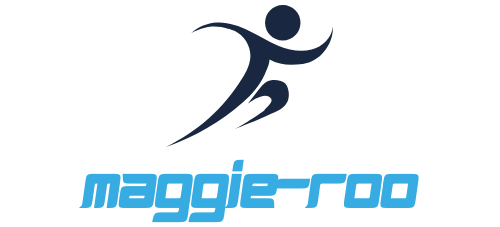Table of Contents
ToggleReturning to work after having a baby can feel like stepping into a circus ring—complete with juggling acts and a few wild animals. New parents often find themselves navigating a whirlwind of emotions, from excitement about their career to the heart-tugging nostalgia for those cozy days spent in pajamas. It’s a delicate balance of wanting to conquer the boardroom while still being the reigning champion of diaper changes.
But fear not! This transition doesn’t have to be a tightrope walk without a safety net. With the right strategies and a sprinkle of humor, parents can ease back into their professional roles while keeping their sanity intact. Whether it’s mastering the art of the quick coffee break or perfecting the “I’m totally awake” look during Zoom calls, this journey can be both rewarding and a little bit hilarious. Let’s explore how to make this leap with confidence and maybe a chuckle or two along the way.
The Journey of Returning to Work After Baby
Navigating the transition back to work after having a baby presents unique challenges for new parents. Many experience mixed emotions, from excitement about career goals to nostalgia for moments shared with their baby. Prioritization of tasks becomes essential during this phase, as juggling work duties with parenting requires a solid plan.
Employers often have policies that support returning parents. Flexible work hours, remote options, or phased returns can ease this transition. Moreover, discussing needs with managers can foster understanding and create a supportive environment.
Creating a schedule that accommodates both work and childcare responsibilities helps maintain balance. Setting boundaries around work hours ensures quality time remains dedicated to family. Establishing support networks with other parents can provide not just practical help but also emotional encouragement.
Childcare arrangements require careful consideration. Research local daycare centers, in-home caregivers, or cooperative arrangements with friends or family. Each option has advantages, and selecting the right fit involves assessing factors like convenience, affordability, and trust.
Prioritize self-care during this time. Short breaks throughout the day for personal time, even if brief, can rejuvenate. Maintaining connections with colleagues fosters relationships that contribute to a supportive workplace atmosphere.
Lastly, expect to face ups and downs during this process. Resilience through challenges is vital, as adjustments may take time. Embracing this journey—with its mix of joy and stress—leads to growth for both parents and their careers.
Preparing for the Transition

Returning to work after a baby demands thoughtful preparation. Several factors impact readiness, from emotional well-being to practical arrangements.
Assessing Your Readiness
Evaluating emotional readiness is crucial before returning to the workplace. Many feel a mix of excitement and anxiety during this phase. Self-reflection helps identify feelings about separation from the baby and work responsibilities. With emotional clarity, parents can better communicate needs to employers. Considering flexible schedules or part-time hours offers a smoother adjustment. Assessing childcare options is another integral aspect. Choosing the right setting for the baby contributes significantly to the parent’s peace of mind.
Discussing with Your Employer
Open dialogue with employers regarding the transition encourages supportive work environments. Scheduling meetings in advance facilitates discussions about flexible hours or adjusted workloads. Employers are often more open to accommodate parents’ needs when approached thoughtfully. Explaining personal challenges related to childcare can enhance understanding. Sharing a detailed plan for balancing work and parenting may foster goodwill and collaboration. Prioritizing communication demonstrates commitment to both the job and family responsibilities. A proactive approach helps establish a supportive relationship that benefits everyone involved.
Managing Work-Life Balance
Returning to work after having a baby requires careful consideration of work-life balance. New parents benefit from creating a structured routine that accommodates both professional commitments and family time.
Establishing a Routine
Creating a consistent schedule helps manage expectations. Daily routines set clear times for work tasks and childcare. A set schedule reduces stress by providing predictability. Incorporating family activities during breaks encourages bonding. Regular check-ins with partners can ensure the routine remains functional while allowing for flexibility when needed. Moreover, a well-established routine fosters stability for both the parent and the child.
Time Management Strategies
Effective time management enhances productivity. Prioritizing tasks each day helps focus on key responsibilities. Utilizing tools such as calendars or apps keeps track of deadlines and appointments. Allocating specific times for focused work sessions without distractions promotes efficiency. Setting aside time for self-care in the schedule allows for rejuvenation amid busy days. Additionally, delegating household tasks can lighten the load, creating a more balanced environment.
Emotional Well-Being
Returning to work after having a baby brings a mix of emotions. Parents often experience anxiety related to separation from their little ones and need to develop coping strategies.
Dealing with Separation Anxiety
Separation anxiety frequently affects new parents upon returning to work. This feeling is normal and manageable with the right approach. Focusing on gradual transitions can ease anxiety. Spending short periods apart initially helps both parents and babies adjust. Maintaining a consistent goodbye routine fosters security for the child. Engaging in activities while away, such as providing small reminders of home, keeps connections strong. Encouraging regular check-ins through video calls or sending photos supports emotional bonding throughout the day. Accepting feelings of anxiety is crucial, as acknowledging emotions promotes healing and adjustment.
Finding Support Systems
Finding support systems plays a vital role in emotional well-being during this transition. Connecting with other parents provides a sense of community and shared experiences. Local parent groups or online forums offer valuable resources for practical advice and encouragement. Many workplaces provide employee assistance programs, which can include counseling support. Friends and family can also serve as crucial support pillars, whether through childcare assistance or simply offering a listening ear. Creating a network allows for shared parenting tips and fosters resilience through collaboration. Prioritizing personal well-being through these connections provides reassurance and guidance throughout the adjustment process.
Tips for a Smooth Return
Navigating the transition back to work after having a baby requires thoughtful strategies for success. Implementing specific practices can significantly ease this process.
Creating a Positive Workspace
Cultivating a supportive workspace enhances productivity and morale. Communication with managers about flexible schedules serves to align work commitments with personal needs. Designating a specific area for focused tasks fosters concentration and mitigates workplace distractions. Personalizing that space with family photos or motivational quotes creates a welcoming environment. Utilizing tools such as planners or apps can streamline tasks and reduce overwhelm. Engaging colleagues for support contributes to a collaborative atmosphere. Accessing workplace resources, like employee assistance programs, lays the foundation for emotional support.
Setting Boundaries
Establishing clear boundaries is essential to balancing work and family life. Defining work hours allows parents to dedicate quality time to their babies. Communicating these boundaries to colleagues promotes understanding and respect. Implementing ‘no work’ zones during family time reinforces this separation. Adhering to a consistent schedule helps manage expectations and alleviate stress. Regularly reflecting on personal time enhances awareness of any imbalance. Minimizing after-hours work communications encourages work-life separation. Developing a routine for evening activities strengthens family connections.
Returning to work after having a baby is a significant transition filled with both challenges and opportunities. By embracing effective strategies and maintaining open communication with employers, parents can navigate this journey with greater ease. Prioritizing self-care and establishing a supportive network will foster resilience during this adjustment period.
With careful planning and a commitment to balancing responsibilities, new parents can create a harmonious blend of work and family life. This period can lead to personal growth and strengthened relationships, proving that with the right mindset, it’s possible to thrive in both roles.








